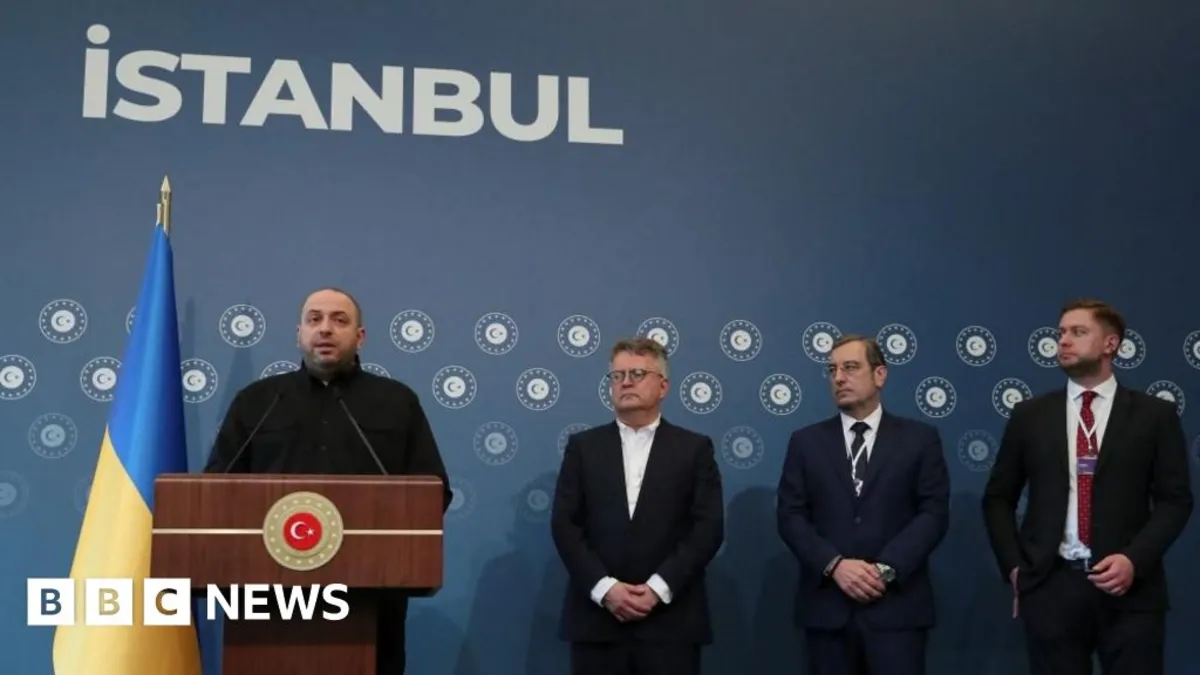
The recent round of peace talks between Russia and Ukraine, held in Istanbul, have ended without a significant breakthrough. Both sides have only agreed to expand the exchange of prisoners of war, a step that, while positive, falls short of addressing the pressing need for a ceasefire. Ukrainian negotiators expressed disappointment as Russia once again dismissed the call for an unconditional ceasefire, a critical demand from Kyiv and its Western allies.
During the talks, which lasted just over an hour, the Ukrainian delegation indicated that Russia had proposed a temporary truce lasting two to three days in specific areas along the extensive front line. However, the Russian team did not provide any additional details regarding this proposal. The Ukrainian Defence Minister, Rustem Umerov, who led the negotiating team, stated that Ukraine is firmly insisting on a full and unconditional ceasefire for a minimum of 30 days to halt ongoing violence and loss of life.
Umerov highlighted that Ukraine had submitted its truce proposals to Russia prior to the negotiations, but Moscow's response was not forthcoming until the talks commenced. Ukrainian Deputy Foreign Minister Serhiy Kyslytsia reiterated that Russia had rejected the request for an unconditional ceasefire, emphasizing the urgency of preparing for direct discussions between Ukrainian President Volodymyr Zelensky and Russian President Vladimir Putin.
Despite the lack of a ceasefire agreement, both parties did reach a consensus on the exchange of sick and heavily wounded prisoners of war, as well as those under the age of 25. Following the meeting, Russian delegation head Vladimir Medinsky confirmed the agreement on these exchanges but did not specify a timeline for when they would occur. Medinsky also announced that Russia would be transferring the remains of 6,000 Ukrainian soldiers to Kyiv in the coming week.
This round of discussions follows the first set of direct peace talks on May 16, where both sides were unable to reconcile their differences on how to end the conflict. During that meeting, they only managed to agree on a mutual exchange of 1,000 prisoners of war. President Zelensky and his European allies have consistently accused Russia of intentionally stalling negotiations to gain more Ukrainian territory.
In the United States, President Donald Trump has been advocating for a swift resolution to the conflict, yet he has not yet implemented stringent sanctions against Russia. Last month, in a rare expression of criticism, Trump referred to Putin as "absolutely crazy" following a series of extensive drone and missile attacks on Ukraine. The Kremlin responded by suggesting that Trump was exhibiting signs of emotional distress.
As the situation remains tense, the need for a comprehensive and lasting peace agreement between Russia and Ukraine is more critical than ever. The outcomes of these negotiations underscore the complexities involved in reaching a resolution and the importance of continued dialogue to prevent further escalation of violence.